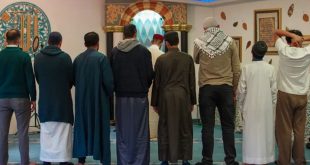Based on two fieldwork studies conducted during Arbaʿin in 2016 and 2017, the present study attempts to examine the changing characteristics of the rituals.
Since the collapse of the Baʿathist regime after the U.S.-led invasion of Iraq in 2003, Shiʿi Muslim rituals, in particular the annual commemorations of Arbaʿin, have seen a revival in popularity. Based on two fieldwork studies conducted during Arbaʿin in 2016 and 2017, the present study attempts to examine the changing characteristics of the rituals. It does so by studying the increasing digitization of Arbaʿin as a commemorative pilgrimage to Karbala, Iraq, to the shrine of the Prophet’s grandson, Imam Husayn. This ethnographic study argues for a mediated conception of Arbaʿin pilgrimage in that digital technologies serve as an embodied site of interaction in shaping shared experiences based on networked sociability. Examining the intimate connections between “physical” and “virtual” spaces, as in the case of Mawakib or gatherings shaped in the form of temporary lodgings in the course of walking processions, the study argues that various uses of digital technologies for pilgrimage are less about means of devotional expression than a series of experiences of digital significance. The paper makes the final argument that the digital practices embedded in ritual processions are acted upon to enhance experience, which increasingly fuses technology with ritual action.
Bibliographic Information
Title: Digital Technology and Pilgrimage: Shiʿi Rituals of Arbaʿin in Iraq
Author: Babak Rahimi (University of California San Diego) and Mohsen Amin (Allameh Tabatabaʿi University)
Published in: BRILL
Language: English
Length: 24 pages
 Ijtihad Network Being Wise and Faithful Muslim in the Contemporary World
Ijtihad Network Being Wise and Faithful Muslim in the Contemporary World
